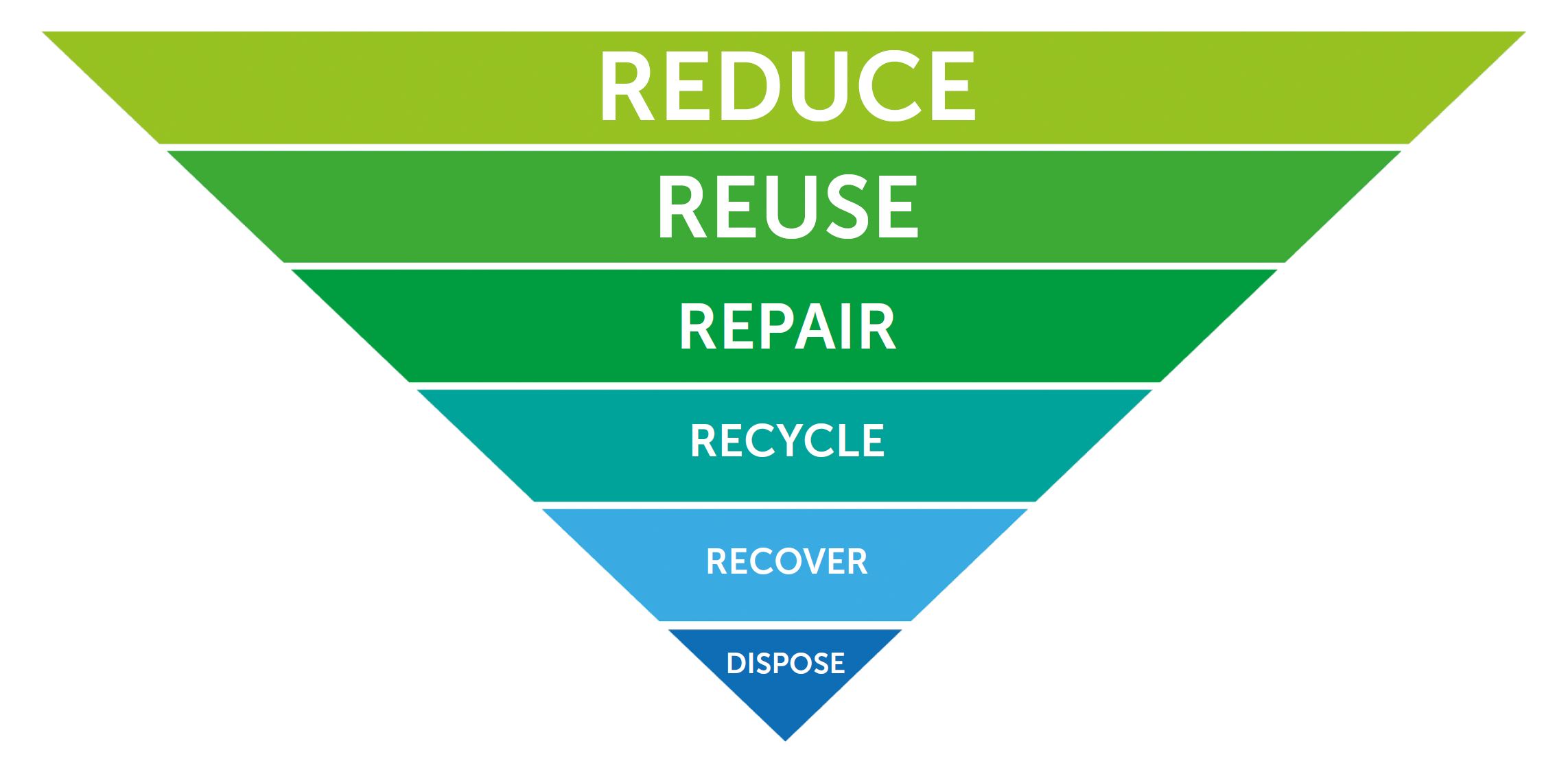In this blog series, with the help of the Green Games Guide - the UK's first resource for tips on how to reduce your carbon footprint - I’ll be answering the all-important question: what can your game business do to tackle climate change?
So far, we’ve addressed how to set your scope and timeline and how to calculate your carbon footprint, and next up from Playing For The Planet's five step process it's Step 3: Take Bold and Ambitious Action to Reduce Your Carbon Footprint.
STEP 3: TAKE BOLD AND AMBITIOUS ACTION TO REDUCE YOUR CARBON FOOTPRINT
Now that you’ve completed Step 1 and Step 2, you’re primed to act towards reducing your games business’s carbon emissions. From the guide, here's some ways that you can address your biggest potential areas of impact.
🍃 OFFICE ENERGY USE
Not only can you reduce your energy output, but you can also make cost savings with these actions. Read more (pg 11).
- Switch off hardware when you aren’t using it and enable auto power saving modes.
- Replace old equipment that’s no longer working with more energy efficient models.
- Turn your office heating down by 1%, this can also reduce heating bills by 8-10%.
🍃 SWITCH TO SUSTAINABLE ENERGY SUPPLIER
There are lots of renewable energy tariffs out there but it’s worth noting the following considerations before committing - which you can see in full in the guide (pg 11).
- ‘Green’ energy, means generating electricity using things like wave/ hydro, solar or wind power that do not deplete the Earth’s resources.
- Make sure you pick the right tariff for your chosen provider. Just because a provider says they provide renewable energy, it doesn’t mean that all their tariffs do this.
- To help you make your decision, you can check if your supplier is certified by the Ofgem energy regulator through its Renewable Energy Guarantees Origin (REGO) scheme.
🍃 REVIEW YOUR DATA STORAGE POLICIES
The more data you store, the more carbon's emitted. There’s lots of ways you can reduce your emissions through smarter data storage. Read more (pg 11).
- Identify if you need extra copies, or even copies of copies of files! Also think about if you need to send as many email attachments.
- Find savings in your cloud costs; the more you spend with your cloud provider, the higher your emissions are likely to be.
- Speak to your server providers to find out how they sustainably consume and store data. Ask three questions of them:
1. What’s the carbon footprint of our cloud computing deployment?
2. Are there regions or data centres I can use that are more sustainable than others?
3. How can I improve the energy efficiency of my cloud deployment?
🍃 REDUCE AND RECYCLE WASTE
The guide (pg 12) is packed full of simple principles to help you cut emissions, cut waste and save your business money.
- A great tip is to apply the waste hierarchy which states that waste should be cut or reduced first and foremost. Only then, should recycling be considered.

- Replace individual desk bins with communal source-segregated recycling bins or stations - WRAP recommends using one recycling bin for every six staff.
- Donate old hardware to other causes to extend its usable lifespan, such as Ukie’s Devices for All campaign which encourages games businesses to commit to donating old devices to schools to help close the digital divide.
🍃 REVIEW POLICIES TO MINIMISE IMPACT OF STAFF COMMUTES & BUSINESS TRAVEL
Transport and commuting could be a significant contributor to your games business’s carbon footprint. As we start to travel into the office and further afield, it’s worth taking a fresh look at your travel policies. Read more (pg 12).
- When commuting, encourage staff to use public transport or encourage walking or cycling.
- When travelling longer distances, consider rail over air.
- Switch to cargo bike couriers for shifting things around cities and towns.
🍃 MAKE YOUR GAMES AS ENERGY EFFICIENT AS POSSIBLE
There is increasing evidence that how games are coded, digitally stored and distributed can have an impact on the energy that is used when they are downloaded, streamed or played. Read more (pg 12) on how your games’ coding will determine your audience’s device’s energy consumption, for data storage, processing or network flows.
- Reuse your assets from different versions of your games to avoid the having multiple versions stored in different places.
- Adapt your game’s specifications to your audience’s average set-up (for PC).
- Don’t bundle up all your 4K assets as your default install.
CASE STUDY
Check out this case study from Jon Taylor (Anthesis Group) in partnership with Jonathan Koomey Research Fellow (Stanford University) on how to make sure that your server is delivering needed and valuable computing or data storage.
UPCOMING EVENTS
GREENER GAMES: HOW A LONDON GAMES DEVELOPER STARTED ITS JOURNEY TO CARBON NEUTRALITY - MONDAY 28 JUNE @ 16.00
Hear from one of London’s leading games developers and its journey to carbon neutrality - and the steps it is taking to empower its players to join in. Space Ape Games is a mobile games studio based in London with the mission of making the highest quality and most successful games on mobile. The company currently offsets 200% of its carbon footprint, reduced its footprint by 25% in 2019 and has pledged to reduce it further.
This session will:
- Demystify how a games studio goes about decarbonising
- Share Space Ape’s practical approach to understanding and addressing the carbon footprint of its studio and games
- Demonstrate how studios are empowering players in their own sustainability efforts
🌍 About the Green Games Guide
The partnership between Ukie, Games London and the Playing for the Planet Alliance will also encourage the sector to think about how it can use its huge reach - the games industry has the potential to reach 1 in 3 people on the planet - to inspire players to change how they think about the environment and to start conversations about the wider collective efforts the sector can make.
Read the guide for tips on how to reduce your carbon footprint now.

